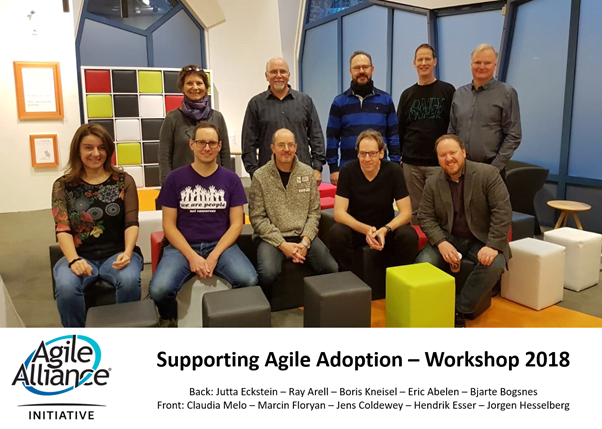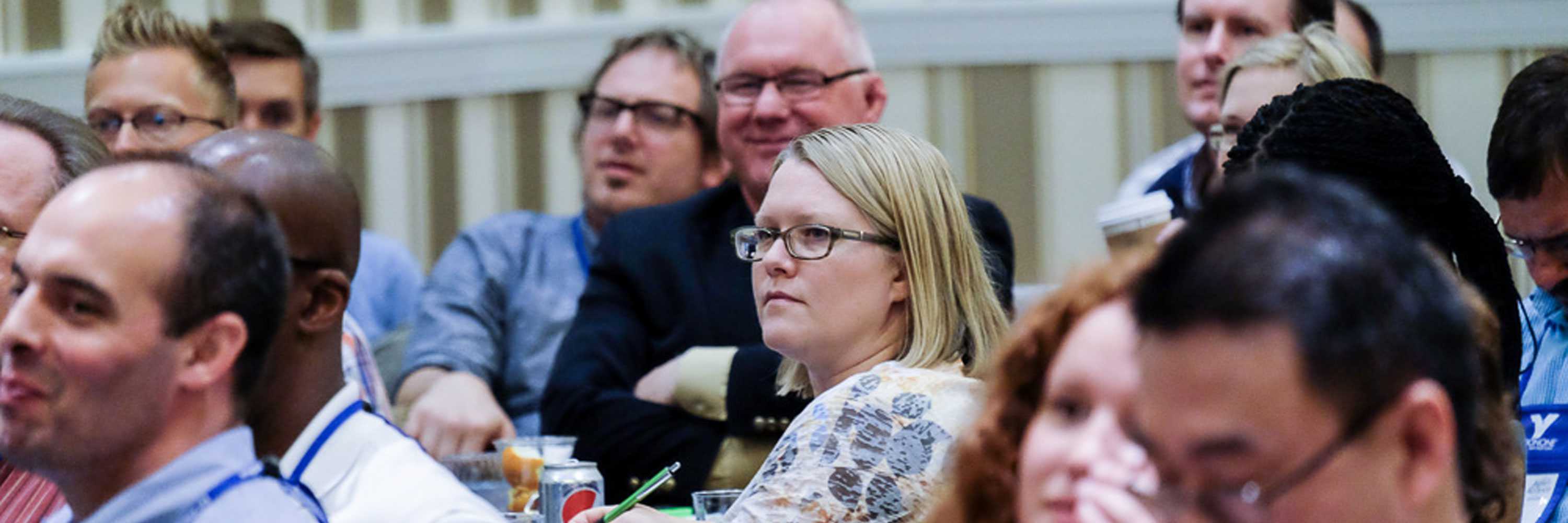From December 14th to 16th, 2018, the members of the Agile Alliance’s Supporting Agile Adoption initiative met for the initiative’s yearly face-to-face workshop. The event was hosted at the ING Bank premises in Amsterdam, The Netherlands.
 The first day was dedicated to learning about the ING Bank Agile transformation – a case that caught a lot of attention in the media because the company went for a full transformation across the whole enterprise. A lot has been written, so no detailed repetition here. Just the impression that this is a very holistic entry towards Agility, which manifests itself in a wholly Agile experience when walking through the office spaces and meeting people including the Agile coaches. It all fits together and was thought through well, inspired by the Spotify and Zappos models adapted to the unique environment of ING.
The first day was dedicated to learning about the ING Bank Agile transformation – a case that caught a lot of attention in the media because the company went for a full transformation across the whole enterprise. A lot has been written, so no detailed repetition here. Just the impression that this is a very holistic entry towards Agility, which manifests itself in a wholly Agile experience when walking through the office spaces and meeting people including the Agile coaches. It all fits together and was thought through well, inspired by the Spotify and Zappos models adapted to the unique environment of ING.
Inspired by what we experienced at ING as well as in our own engagements over 2018, we concluded the day with building a backlog we would work on the next day. That backlog was surely too large to complete in one weekend, so we prioritized and concentrated on a few items. Overall, one bigger theme with many different perspectives emerged: continuous learning as the root of Agility.
The second day then was a work-day: running several sprints with short presentations of intermediate results. We started with everybody getting 2 minutes to share their number one learning from 2018. That brought up a lot of interesting things and we will write them down in small papers to share them with the Agile community. Find the first one published here on the Agile Alliance blog.
After that we pulled from our backlog. One item we worked on dealt with the question how executives learn and how we could support that group better in learning. Another related item dealt with how we can help companies creating internal or using external ecosystems for fostering Agility. And one item dealt with how can we create a learning organization and how we can design organizations that learn? We found Organizational Learning being the core of the models copied so often and that copying the resulting structure (rather than their learning capabilities) is one of the root causes for frustrating results and Cargo Cult. We discussed the phenomenon that an increasing amount of companies are copying the “Spotify Model” without having deeply understood its cultural base and implied organizational design.
The third day started with recording the Christmas edition of the Agile Coaching Network, which you can listen to here (episode 26). It covers a good discussion of the principles behind the Agile Manifesto, looking at them from a historical as well as practical implementation perspective, the timeliness of the principles, as well as how they support company-wide Agility.
After that, we concluded the workshop. We will write papers about the above-mentioned subjects. Especially the paper on the Learning Organization, which several participants were very passionate about and where the discussion brought up a lot of interesting and helpful connections between learning and performance, organizational design, and enablers as well as concrete examples for fostering a learning culture.
Apart from the work during these days we also had the pleasure to visit Amsterdam at night traveling on a boat through the very nicely illuminated city which was in the Christmas mood.
Gatherings like this remind us about how important and rewarding the personal connections across the Agile community are. They are the source of global collaboration and shared learning that give us new insights into Agility and impulses to our societies — making our workplaces more humane, sustainable, and productive.


![[Case Study] Lessons from descaling 25 Scrum teams](https://www.agilealliance.org/wp-content/uploads/2024/12/descaling-teams-1200x630-1-150x150.jpg)



![[Case Study] Lessons from descaling 25 Scrum teams](https://www.agilealliance.org/wp-content/uploads/2024/12/descaling-teams-1200x630-1-300x158.jpg)


